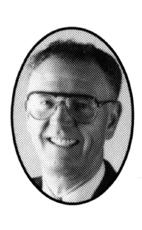Mr. Speaker, on the sixth of June, 1944 Canadians joined allied forces in the assault on Festung Europa, Fortress Europe, a continent held for more than four years in the iron grip of the Axis forces: Adolf Hitler's Third Reich and Benito Mussolini's fascist regime.
Prior to the D-Day invasion Canadians had twice been engaged against the Axis: at Dieppe on August 19, 1942 and in the Italian campaign which started with the invasion of Sicily on July 10, 1943.
In these previous actions Canadians took heavy casualties but established themselves as a formidable adversary; determined, courageous and effective fighting troops, respected and feared by their opponents.
On D-Day the five Normandy beaches to be assaulted were designated Utah, Omaha, Gold, Juno and Sword. On this, the longest day, more than 150,000 allied soldiers would complete their crossing from England to occupied France.
Inland over 23,000 U.S. paratroopers had jumped into battle while another 57,000 American soldiers landed on the beaches designated Utah and Omaha.
Concurrently British and Canadian troops had jumped or landed in gliders while 60,000 British and 15,000 Canadian troops joined the assault on the beaches, the British on Gold and Sword while the Canadian came ashore on Juno. Thus, one in ten of the allied forces landed in the D-Day invasion was Canadian.
This ratio carried through to the total Canadian population with over one million of Canada's 11 million people in uniform and behind them was a Canadian public committed to supporting the war effort. Canadians were united in rejecting the totalitarian forces of Germany, Italy and Japan, a regime which had it not been effectively opposed would have subjected the world to a reign of terror, discrimination and oppression.
Canada's D-Day success resulted from a combined effort of navy, army and air force units, 109 ships and 10,000 sailors, 15,000 soldiers and 37 RCAF squadrons working as a team.
Canadians achieved two firsts during the Normandy campaign. The Canadian 7th Brigade was the first formation to reach its D-Day goal, and 441, 442 and 443 squadrons RCAF were the first to commence air operations from French soil since the allied 1940 withdrawal from France.
The Canadians who went ashore at Dieppe, at Pachino, at Normandy and those who fought to liberate the rest of Europe considered themselves ordinary people but they were willing to jeopardize their all to support a cause in which they believed.
I want to conclude with a quote from Jack Granatstein's book, Normandy, 1944 where, speaking of Canadians who landed on D-Day, it is said:
They were not all saints. They were not all heroes. But there were saints and heroes among them. Remember them and remember their achievements.

